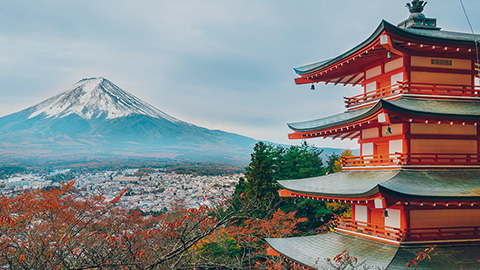"Golden Opportunities" for Southeast Asian startups to thrive in Japan
February 2024

Southeast Asian Startups: Japan's Gateway to Growth
Japan's increasingly dynamic startup space is attracting global incubators and venture capital investments to the country, bolstered by unprecedented levels of financial and regulatory support from national and local governments.
This gives an opening for Southeast Asian startups that are looking to broaden their horizons beyond their borders in Asia's second-largest economy, which offers a unique set of circumstances and opportunities for those seeking financing or business partnerships.
Relations between the Association of Southeast Asian Nations (ASEAN) member states and Japan are warm, as both sides forged a Comprehensive Strategic Partnership in 2023, in celebration of the 50th anniversary of their relationship.
Japan-ASEAN Ties: Co-Creating Growth and Innovation
As Southeast Asia continues to develop, the region's ties with Japan are evolving as well. In August of 2023, Japan announced the ASEAN-Japan Economic Co-Creation Vision, in which it expressed its commitment to engage with ASEAN as equal partners in a shift from the hitherto relationship that is centered on overseas development assistance.
In doing so, the document said Japan would pledge to tap the diversity of individual countries, building "growth and innovation models … to realize a fair and mutually beneficial economic co-creation."
Japan, with its reputation as a high-quality manufacturing and technological hub, has a wealth of companies that are keen to work with startups to develop and implement new technologies. Its socio-economic challenges in aging and low fertility, as well as in energy and food security, make it a natural laboratory to testbed new solutions.
Aerodyne's Impact on Japan's Infrastructure
This was the experience for Aerodyne Group, a unicorn-in-the-making from Malaysia that is regarded as the world's largest drone service provider.
The startup specializes in tapping unmanned aerial vehicles to gather data, which is then analyzed using artificial intelligence, so as to tackle complex industrial challenges. Founded in 2014, Aerodyne entered Japan in 2018 and now has operations in 45 countries worldwide.
"Japan offers the best field case study of what drones can achieve, given that it is at the forefront of societal issues that traditionally are resolved in an analog fashion," says Koji Shikatani, the startup's chief representative in Tokyo.
As an example, he notes that Japan's bridges and other infrastructure are often older than elsewhere in Asia, but inspections are traditionally conducted manually without technology.
"By using unmanned aerial vehicles, we can clearly study the industry needs and impact, and in turn create and export solutions," he adds. "Japan's digitalization drive cannot be avoided."
He notes that even as the inspections are conducted manually in Japan, they are conducted at higher standards than in many countries, given Japan's emphasis on quality infrastructure. This gives rise to opportunities, he says, to export elsewhere the combination of drone technology and Japan's knowhow of infrastructure inspections.

Revitalizing Japan's Business
However, Japan has long been perceived to have a weak startup culture amid stagnant economic growth, as well as a lack of innovation and animal spirit due to its maturity.
Things are rapidly changing and the tall barriers of entry that have long vexed foreign startups, such as language and bureaucracy, are collapsing.
"The startup ecosystem has changed considerably, with the tailwinds blowing more favorably now than when we first entered," says Shikatani. He admits that the company had found it difficult to grow a customer base and that the business failed to take flight for about a year.
He cites two main reasons for the changes: the COVID-19 pandemic had accelerated mindset change and business reforms towards greater productivity, as well as a nationwide digitalization push.
The mood is also shifting towards greater innovation, with Government of Japan having set a goal to increase annual investment in startups to at least 10 trillion yen by fiscal year 2027, which is more than a tenfold increase from current levels.
A new startup visa allows foreigners to stay in Japan for up to one year, in preparation to launch their business.
Moreover, the Japan External Trade Organization (JETRO) is offering support to startups, including by bridging support to Japanese companies and advice for those intending to relocate to Japan.
As a matter of fact, startups have been spreading beyond the capital, throughout all of Japan. With this in mind, the Japanese government has selected eight cities as Startup Cities and is providing intensive support for the ecosystem building in cooperation with local governments, universities, and the private sector.
Among the newcomers are Singapore's Umami Bioworks, which is working with Japan's largest seafood seller Maruha Nichiro to cultivate seafood as warmer oceans heighten the risks of falling catch.
Eureka Robotics, also from Singapore, offers automation software for industrial robots and is partnering robot manufacturer Denso Wave and optical equipment manufacturer Sigma Koki.
Tech Harmony: Japan and Beyond
Aerodyne's partners include various firms, such as infrastructure inspection firms and aerial mobility ventures. It has also won projects with local governments like Hokuto city in Yamanashi prefecture.
It has won funding from Japanese VCs such as the Drone Fund and RealTech Fund, while increased media coverage has brought higher visibility, creating a virtuous circle with more business inquiries, Shikatani says.
There are also opportunities for Aerodyne to not only collaborate with Japanese drone startups but help them grow abroad due to its international network, Shikatani adds.
Since May 2023, Aerodyne Japan has been working with Osaka-based AERO G LAB, which has built Japan's first hybrid drone using a gasoline engine generator with a maximum flight time of two hours.
The two startups are conducting test flights in Malaysia, due to Japan's limitations for long-distance flight tests.
"I think this is a very good timing, and an excellent business opportunity, for ASEAN startups to enter Japan," Shikatani says.

Koji Shikatani, CEO of Aerodyne Japan:
Learn More
Contact Us
Investing in Japan
We will do our very best to support your business expansion into and within Japan. Please feel free to contact us via the form below for any inquiries.
Inquiry FormJETRO Worldwide
Our network covers over 50 countries worldwide. You can contact us at one of our local offices near you for consultation.
Worldwide Offices

























